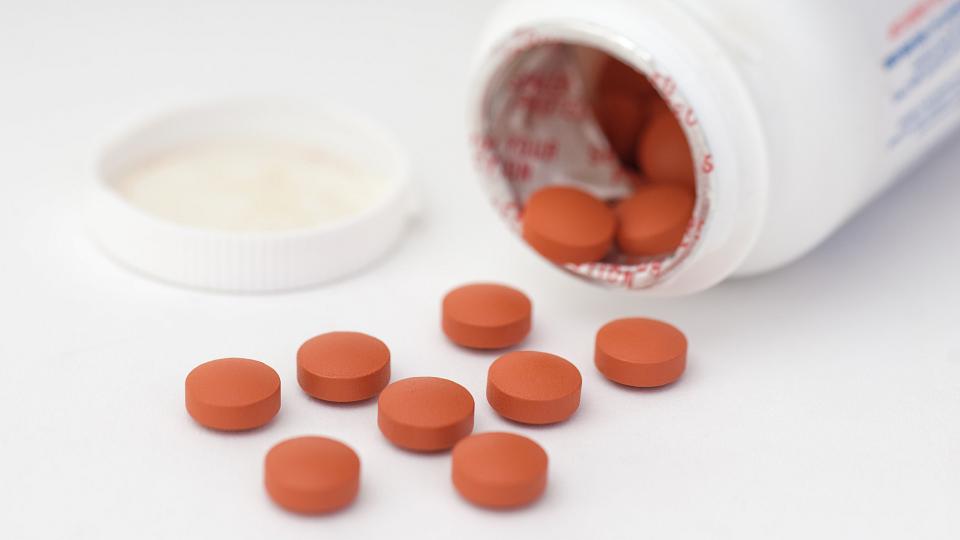
Episode Transcript
Interviewer: In the future, your neighborhood pharmacy may be very different than it is today. We'll talk about that next on The Scope.
Recording: Examining the latest research and telling you about the latest breakthroughs. The Science and Research Show is on The Scope.
How Will Pharmacies Change In the Next Five to Ten Years?
Interviewer: I'm talking with Dr. Mike Feehan, a visiting professor in the College of Pharmacy at the University of Utah. Dr. Feehan, in five or ten years, how might our neighborhood pharmacy be different than it is today?
Dr. Feehan: That's a really interesting question. I think what might change in the future is, be a greater likelihood that you might not just be going in for your high blood pressure medication. You might be going in there to get your bottled milk, and at the same time you've been noticing that you've had this earache that's been building for the last couple of days. So rather than make an appointment to see your physician, you might just see a practice nurse at the pharmacy while you're there, get a diagnosis, get a prescription for an antibiotic, and talk to the pharmacist about what the risks and benefits of that medication are for you. Then get your milk on your way out.
Health Care & Pharmaceutical Services
Interviewer: So perhaps more kind of on demand health care?
Dr. Feehan: Yes, and we're seeing this happen now with the likes of CVS with their Minute Clinics. You can go and you can get seen for a limited range of primary care needs. You can get seen very quickly, and relatively affordably without having to go through the process of traveling and visiting your doctor.
Interviewer: One possibility is that the pharmacy would become more part of the health care continuum.
Dr. Feehan: Right, exactly, sort of acute care needs that might not require complex medical consultation but still require a trained health care professional providing advice. What we would like to see is a world where pharmacists are not being, perhaps, seen so much in the dispensing of medication role, but in a much more counseling the patient about what constitutes good health care, good adherence, things like that. Working in a model where that patient participation is encouraged.
Interviewer: So you're actually doing research to try to figure out what this future pharmacy of the future will look like. Tell us a little bit about what you're doing.
How Pharmacists are Building the Future
Dr. Feehan: Sure. We're actually doing one of the world's largest, most comprehensive surveys looking at what people might want in the potential range of services that could be offered by their pharmacies. We're also interviewing a large portion of pharmacists to see what services they may or may not be willing to provide. We're also looking to survey reimbursement decision makers to see whether these services would likely be reimbursed.
The basic approach is we'd like to build a linked model where we basically try and output, what is the optimum pharmacy, given all the range of services that you could provide? What is the pharmacy service package that will attract the most customers and provide pharmacists with the greatest degree of personal and occupational satisfaction. And to be sustainable, what are the services that are most likely to be reimbursed?
Interviewer: Correct me if I'm wrong, but this is kind of a new approach, right? I mean it's kind of looking at it from more of a business perspective than . . .
Dr. Feehan: Yes, that's one way to look at it. When we think about any purchase decision we make, human beings are very good simulators. Our brains are very good computers. So, if I were to ask you tonight, what are your dinner plans or where might you go, you might think, "Well, I could go to McDonald's, I could go to the local IHOP, or I could go to Ruth's Chris Steakhouse." That choice is made up of you determining which of all the different attributes are most important to you. Whether it's location, price, travel time, whether it's going to rain, and is there good parking?
So you factor in all those attributes and then you make a decision that's the optimal for you. This is done in industry all the time. We will build vertical discreet choice models, where we model what is the optimum configuration of any product or any service.
Interviewer: So you present people with different choices, and they pick from among those choices.
Dr. Feehan: What we try to do is present people with a real-world experimental choice. If I were to ask you, as a consumer, what is most important about whatever service or product you might want, probably everything becomes pretty important. In health care, if I asked you what's important, you're going to say that you want your health care to be delivered easily. You want good access. It has to be cheap. It has to be affordable. Unless we put a trade-off in there then you get this common sense response that everything is important. We all know that everyone wants the best quality health care for free or as close to free as possible.





